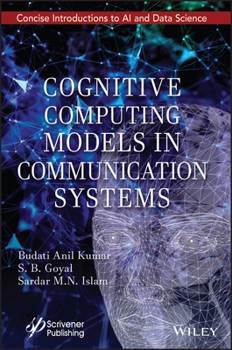Cognitive Computing Models in Communication Systems
Select Format
Select Condition 
Book Overview
A concise book on the latest research focusing on problems and challenges in the areas of data transmission technology, computer algorithms, AI-based devices, computer technology, and their solutions.
The book provides a comprehensive overview of state-of-the-art research work on cognitive models in communication systems and computing techniques. It also bridges the gap between various communication systems and solutions by providing the current models and computing techniques, their applications, the strengths and limitations of the existing methods, and the future directions in this area.
The contributors showcase their latest research work focusing on the issues, challenges, and solutions in the field of data transmission techniques, computational algorithms, artificial intelligence (AI)-based devices, and computing techniques.
Readers will find in this succinctly written and unique book: Topics covering the applications of advanced cognitive devices, models, architecture, and techniques. A range of case studies and applications that will provide readers with the tools to apply cutting-edge models and algorithms. In-depth information about new cognitive computing models and conceptual frameworks and their implementation.
Audience
The book is designed for researchers and electronics engineers, computer science engineers, industrial engineers, and mechanical engineers (both in academia and industry) working in the fields of machine learning, cognitive computing, mobile communication, and wireless network system.





















